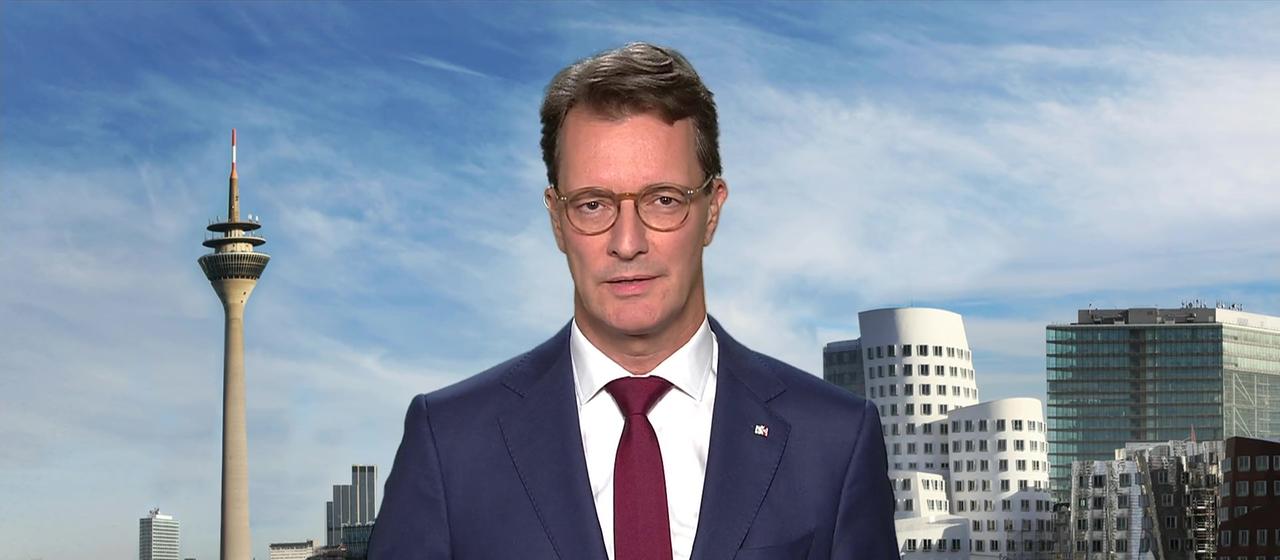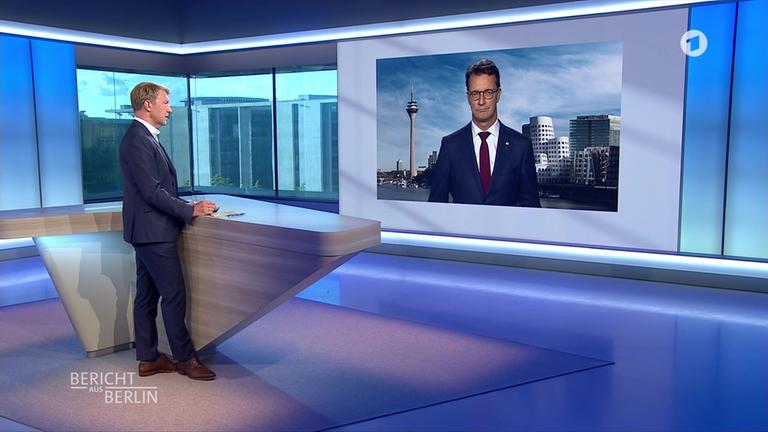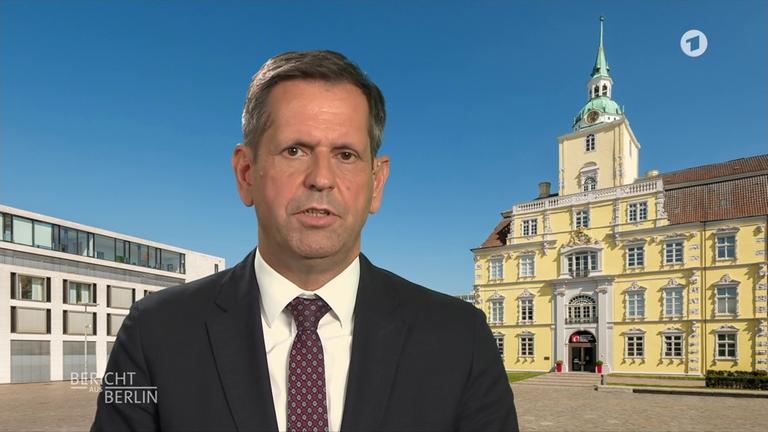
The CDU breathes a sigh of relief: It appears to have defended its lead in North Rhine-Westphalia. Minister-President Wüst expressed satisfaction in the report from Berlin. He is concerned about the AfD's strong performance – and the weakening SPD.
It was seen as a mood trend for federal politics: around 13.7 million inhabitants in North Rhine-Westphalia elected state and municipal councils, mayors and district councils.
In a report from Berlin shortly after 6 p.m., after the polling stations closed, North Rhine-Westphalia's Minister-President Hendrik Wüst expressed his extreme satisfaction with the expected outcome."The election goal has been achieved. We are the strongest party, and we continue to be the number one local party," said the CDU politician. The Christian Democrats'"solution-oriented and pragmatic policies" have prevailed.
The state leader referred to the infratest-dimap forecast for WDR. According to this forecast, the party would receive 34 percent—roughly equivalent to the result of the 2020 state election.
Before the election, the party in North Rhine-Westphalia had been reassuring: A result between 20 and 30 percent was considered"decent" within the party. The CDU and the SPD have major problems nationwide reaching their traditional voter bases – and tapping into new ones. The North Rhine-Westphalia election now represents a sigh of relief for the CDU; expectations have likely been exceeded.

Setback for SPD in former home state
Joy for the CDU, but for its federal coalition partner, the SPD, it could be a bitter evening. According to forecasts, the party could achieve 22.5 percent. That would be a historically poor result for the Social Democrats, especially in the state that was considered the SPD's home base for many decades. At the SPD's election party in Dortmund, politicians initially appeared reserved on WDR. They said they didn't want to get unnecessarily nervous before the official figures were announced.
Olaf Lies expressed it differently in the Report from Berlin. The Minister-President of Lower Saxony was self-critical."We talk too little about our former core electorate," said the SPD politician. The Social Democrats must clearly emphasize what they are doing for those who work every day—for example, in shift work. It is also about developing clearer industrial policy messages."We have not emphasized enough that this is about the middle," said Lies.

Wüst refrains from criticizing the SPD
This isn't the evening to give anyone advice, said Wüst in response to a question about the SPD's expected poor performance in North Rhine-Westphalia. At the federal level, the CDU, CSU, and SPD are in coalition."Each party must analyze the outcome for itself to determine whether the old answers are still the right ones – for the present and for the future," said the Minister-President. But he won't offer any"snobby advice."
In view of the AfD's strong performance in the former "heart of social democracy" – especially in the Ruhr region – everyone will be asking themselves what the right answers are regarding poverty migration, said Wüst."Are all parts of our social systems truly fair?" Many things – such as "problem real estate" – have been allowed to continue for a very long time."But these questions are for all of us," said the state leader.
AfD result"cannot let us sleep peacefully"
According to the forecast, the AfD, in particular, may have benefited from the SPD's poor performance, nearly tripling its result to 16.5 percent. That's not going to give anyone a good night's sleep, Wüst emphasized. However, according to the forecast, the AfD is still five, perhaps even ten percentage points below the national average, the CDU politician added. The political situation throughout Germany is completely different. One cannot speak of a"westward migration of the AfD" in North Rhine-Westphalia; that is "not accurate in such a narrow sense."
In 140 municipalities, the AfD has not nominated anyone for city council, Wüst emphasized."In one-third of the municipalities, there are neither mayoral nor district administrator candidates." Nevertheless, the result should give food for thought.
Personal concern of the coalition
Berlin's political community was eagerly awaiting the election in Germany's most populous state. After all, North Rhine-Westphalia has more eligible voters than all of the eastern German states combined. Moreover, many prominent figures in federal politics hail from North Rhine-Westphalia: Chancellor Friedrich Merz, CDU parliamentary group leader Jens Spahn, and CDU General Secretary Carsten Linnemann. SPD leader Bärbel Bas also hails from North Rhine-Westphalia.
The result in North Rhine-Westphalia, and especially the AfD's performance, will likely continue to preoccupy federal politics. Even before the local elections, Chancellor Merz announced that he would draw critical conclusions from the results. He stated that he was determined, especially with the AfD, to"wrestle very hard on the issues and the direction of the state."

